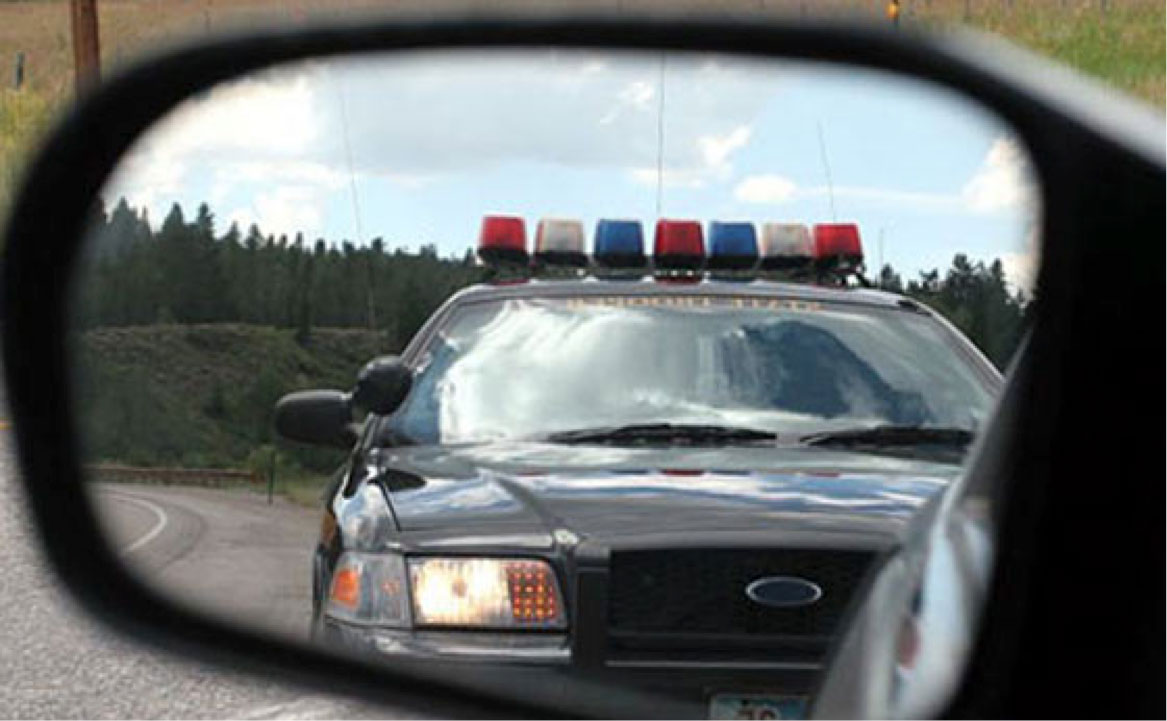If you've ever been pulled over by the police, you know how it can totally put a damper on your day, no matter how good it was before the incident. Everything is going fine one minute, and the next, you're facing a big fine and some points against your driving record. However, there are some ways to handle the situation that will be of benefit to you. First, you should always cooperate by pulling over to the side of the road right when it is safe to do so. It's best to pull over as quickly as possible because it indicates good cooperation and you'll be closest to the scene of the incident, allowing you to gather whatever necessary information you need if you should decide to fight the violation in court.
Once you have pulled over in a safe manner, switch off the engine and open your window while keeping your hands on the wheel. If it's dark out, it'd be a good idea to turn on some lights in the car. You should really avoid making any quick movements and avoid searching for your legal documentation until the officer asks for them. Many officers have lost their lives in routine traffic stops, so you should always expect them to be suspicious of you. In fact, they are trained to be suspicious of every driver. Do not get offended by their suspicion; simply cooperate and don't give them any more reason to be suspicious of you.
It is usually fine to greet an officer, but you should normally wait until he or she talks first. The officer will ask you for your license and registration, but do not question why they need it because this may convince them to for sure give you a ticket. Be fully cooperative and hand them what they need. However, if you've been pulled over by an unmarked vehicle, or you suspect the person is not an officer, you can hold off on giving information until you have confirmation that they are a police officer.
When first talking to the officer, you shouldn't admit your guilt, and if you choose, you may simply answer only "yes" or '"no." If you do actually get a ticket, there's no reason to argue because they have already made up their minds, and you may say something to them that could be brought up in court if you try to fight the ticket. It is never OK to try and bribe an officer into not giving you a ticket because it's a serious offense that will only put further charges against you. Some who are pulled over even try to pay the officer at the time of the incident, but this should be avoided at all costs because it's not allowed and it could be mistaken for a bribe.
While pulled over, an officer cannot go into your car without probable cause. Therefore, you should not give the officer any reason to suspect you are holding anything illegal in the car because then they will have probable cause to search it. Officers are trained to look out for signs of people quickly hiding something in their vehicles when first pulled over. Thus, it's extra important to sit still in the initial phases so they don't get the wrong idea of you hiding something.
You may be asked to step out of your vehicle, and if you are, you should cooperate and immediately step out, even if it seems totally unnecessary. There may be a pat down if the officer suspects anything illegal might be on your person, and if he or she finds something, they have probable cause to check out your vehicle. Also, if your car becomes impounded, it can be legally searched then as well.
Upon receiving a ticket, an officer will ask you to sign it. You should know that your signature does not indicate that you are admitting guilt; it just signifies that you agree to pay the fine and attend your court date. Not signing the ticket could get you into even more trouble and cause a bigger mess than you've already got.




 Live Chat
Live Chat



